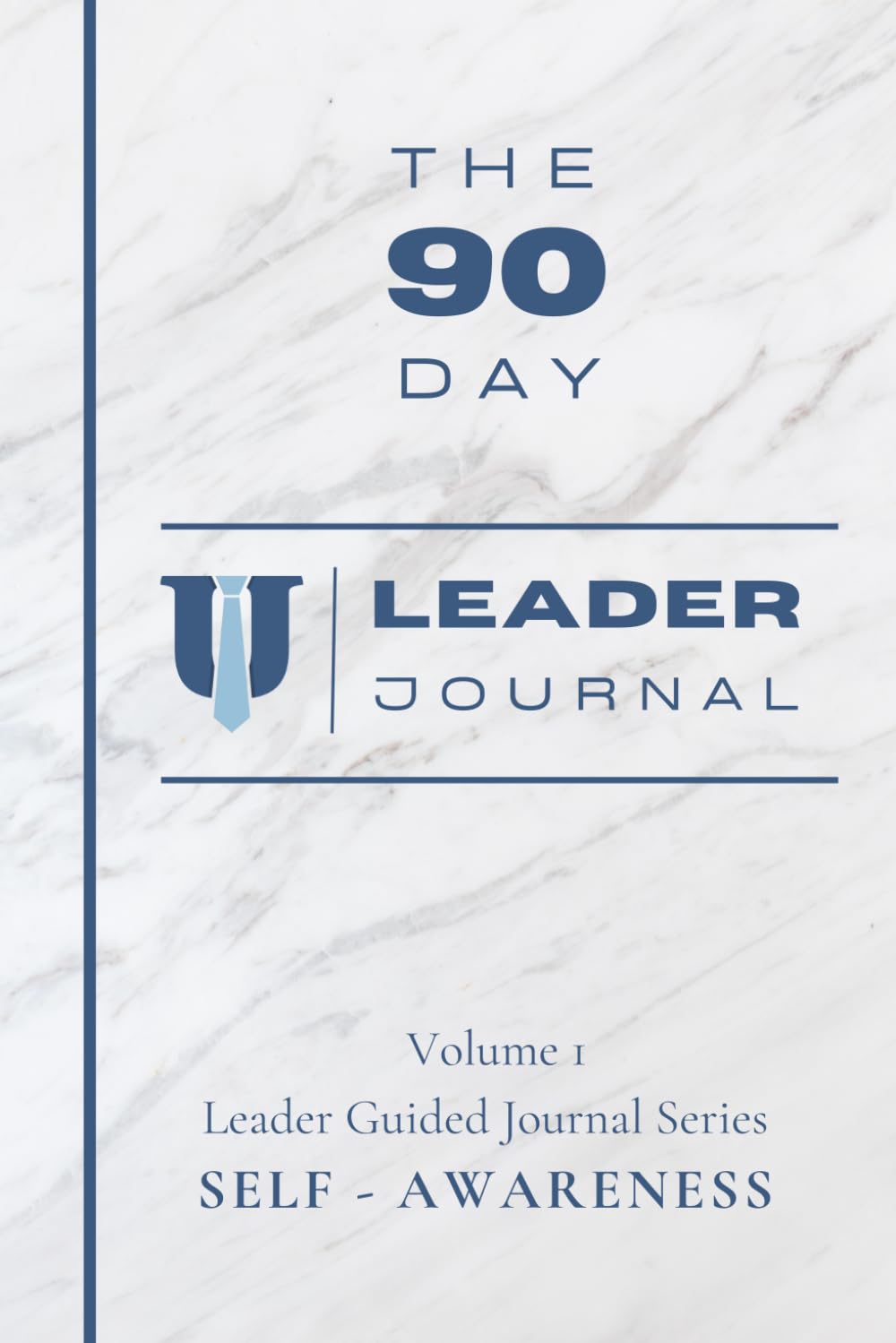
This blog offers practical strategies and insights for leaders facing writer’s block in their journaling practice. Through understanding its causes, exploring actionable tips for overcoming it, and harnessing the opportunity for personal growth, leaders will learn to navigate this challenge, enhancing their reflective practice and leadership capabilities. Get ready to unlock your journaling potential and amplify your leadership journey.
Table of Contents
Introduction
For leaders, journaling is a lighthouse amidst the fog of daily challenges, illuminating paths toward greater insight and self-awareness. However, the specter of writer’s block looms large, capable of rendering even the most articulate leaders silent, their pens frozen above unmarked pages. This daunting obstacle does more than merely interrupt the flow of words; it shadows the very essence of our leadership capabilities, obscuring our clarity and dampening our growth.
Far from being a mere indicator of creative exhaustion or intellectual fatigue, writer’s block represents a pivotal moment of hesitation. At the junction of retrospection and forward-looking thought, it is here that our inner dialogue stalls, tangled in a web of perfectionism, the relentless buzz of tasks, or the quiet struggle against our self-doubt.
Recognizing the grip of writer’s block is the crucial first stride toward overcoming it. This blog post is designed to equip you, the dedicated leader, with an arsenal of tactics and perspective shifts to navigate past the hurdles that impede your journaling practice. In reigniting your connection with the act of writing, you do more than reclaim your story; you enhance your leadership with renewed authenticity, resilience, and visionary thinking. Join me as we dismantle writer’s block, tapping into the vast expanse of leadership potential that awaits discovery.
Understanding Writer’s Block
At its core, writer’s block is a psychological hurdle that hampers one’s ability to put thoughts into words. In leadership, where reflection and foresight are as vital as action, writer’s block can significantly impede a leader’s capacity to process experiences, envision futures, and articulate strategies.
The Nature of Writer’s Block
Writer’s block in leadership journaling isn’t merely about the inability to write; it manifests deeper challenges. These can range from emotional barriers, such as fear of facing uncomfortable truths, to cognitive obstacles, like over-analysis or perfectionism. It signals that our thoughts and emotions are in a complex dance, often out of sync with our intentions to articulate and reflect.
Writer’s block in leadership journaling is a complex interplay of psychological and emotional factors rather than a mere inability to write. Psychologist Steven Pritzker, co-editor of “The Encyclopedia of Creativity,” suggests that what we often label writer’s block may reflect discipline issues rather than an inherent lack of creativity. This perspective underscores the importance of addressing our writing habits and environment to overcome this challenge. Practical advice, such as establishing a writing routine and creating a conducive workspace, aligns with the idea that overcoming writer’s block involves discipline and a structured approach. Leaders can unlock greater creativity and insight in their journaling practice by tackling the underlying discipline and habit-related aspects of writer’s block.

Encyclopedia of Creativity
by Mark A. Runco (Editor), Steven R. Pritzker (Editor)
Common Causes of Writer’s Block Among Leaders
Leaders face unique pressures that can contribute to writer’s block:
- Perfectionism: The high standards leaders set for themselves can paralyze their ability to write freely and authentically.
- Time Constraints: The heavy demands on a leader’s schedule can make consistent journaling challenging, leading to sporadic entries and increased pressure to make each one ‘perfect.’
- Emotional Barriers: Leaders often deal with complex, high-stakes decisions. The emotional weight of these decisions can make it difficult to process and articulate thoughts.
The Impact of Writer’s Block on Leadership
The implications of writer’s block extend beyond the personal frustration of an unmarked page. It stifles the reflective practice crucial for leadership development, hindering growth, decision-making, and the ability to mentor others effectively. Journaling offers leaders a mirror to their thoughts and decisions, providing clarity and insight. When writer’s block intervenes, it dims this reflective clarity, leaving leaders less equipped to navigate the complexities of their roles.
Overcoming Writer’s Block: A Leadership Imperative
Understanding writer’s block is the first step toward dismantling it. By recognizing the common causes and impacts, leaders can approach their journaling practice with renewed perspectives and strategies tailored to navigate these challenges. The subsequent sections will explore practical, actionable strategies to re-engage with the journaling process, transforming writer’s block from a barrier to an opportunity for growth and insight.
Strategies to Overcome Writer’s Block
Overcoming writer’s block involves a multifaceted approach, integrating practical actions with mindset shifts. Here, we outline strategies to reignite the spark of reflection and expression in your leadership journaling.

Strategy 1: Embrace Imperfection
Perfectionism can be a significant barrier to journaling. The expectation that every entry must be profound or impeccably written stifles creativity and spontaneity.
- Actionable Tip: Begin each journaling session by writing freely for 5 minutes. Focus on getting your thoughts out without concern for grammar, structure, or coherence. This “free writing” technique helps bypass the inner critic, encouraging a more fluid and pressure-free exploration of ideas.
Strategy 2: Establish a Routine
Consistency is key to overcoming writer’s block. By establishing a regular journaling routine, you reduce the mental energy required to get started, making it easier to engage with your journal.
- Actionable Tip: Schedule a specific time each day for journaling, even if it’s just 10 minutes. Treat this time as a non-negotiable appointment with yourself, creating a habit that signals to your brain it’s time to write.
Strategy 3: Create a Stimulating Environment
Your environment can significantly influence your mindset and creativity. A space that inspires reflection and thoughtfulness can ease the journey through writer’s block.
- Actionable Tip: Personalize your journaling space with items that inspire you (e.g., photos, quotes, a favorite pen). Consider ambient noise or music if it helps you focus, and ensure the space is comfortable and free from distractions.
Strategy 4: Use Prompts and Themes
Sometimes, the difficulty lies not in writing but in knowing where to start. Prompts and themes can provide a focused pathway for your reflections, especially relevant to leadership challenges.
- Actionable Tip: Keep a list of prompts related to leadership development, such as “A challenge I overcame today was…” or “One leadership skill I want to develop is…”. Rotate through these prompts to explore different facets of your leadership journey.
Strategy 5: Leverage Technology
Technology offers tools that can make journaling more accessible and engaging, potentially bypassing traditional barriers to writing.
- Actionable Tip: Experiment with digital journaling apps that offer built-in prompts, organization tools, and even AI-powered insights. Speech-to-text features can also be particularly useful for verbal processors who prefer speaking over writing.
Summary Table of Strategies
| Strategy | Actionable Tip |
|---|---|
| Embrace Imperfection | Write freely for 5 minutes, ignoring grammar or coherence. |
| Establish a Routine | Schedule a daily, non-negotiable time for journaling. |
| Create a Stimulating Environment | Personalize your space with inspirational items; use music or ambient noise. |
| Use Prompts and Themes | Keep a list of leadership-related prompts for focused reflection. |
| Leverage Technology | Explore digital journaling apps and speech-to-text features. |
When applied thoughtfully, these strategies can help dismantle writer’s block barriers, paving the way for a richer, more consistent journaling practice. Each leader’s journey with journaling is unique, and what works for one may not work for another. Therefore, I encourage you to experiment with these strategies, adjust as needed, and discover what best supports your reflective practice as a leader.
Turning Challenges into Opportunities
The journey through writer’s block is not just about finding ways to write again; it’s a profound opportunity for personal and professional growth. In this section, we explore how the challenges associated with writer’s block can be transformed into gateways for deeper insight, resilience, and leadership development.

Embracing Vulnerability
Writer’s block often stems from a place of vulnerability—fear of inadequacy, reluctance to confront difficult emotions, or anxiety about how our words will be perceived. By acknowledging and embracing these vulnerabilities, leaders can cultivate a stronger sense of empathy and understanding for themselves and others. This process not only enriches the journaling experience but also enhances interpersonal relationships and team dynamics.
- Actionable Insight: Reflect on the emotions and thoughts arising from writer’s block. Journal about these feelings, not intending to solve them, but to understand and accept them. This practice can deepen your emotional intelligence and improve your leadership style.
Learning Through Reflection
Writer’s block forces us to pause and consider why we struggle to write. This reflective process can provide valuable insights into our leadership style, decision-making processes, and personal growth areas. By examining the roots of our blockages, we can uncover hidden fears, biases, or assumptions influencing our leadership approach.
- Actionable Insight: Use your journal to explore the underlying reasons for your writer’s block. Are there specific leadership challenges or decisions that feel particularly daunting? How might these be influencing your ability to journal? Reflecting on these questions can illuminate paths for growth and development.
Fostering Creativity and Innovation
The strategies for overcoming writer’s block—embracing imperfection, establishing routines, creating stimulating environments, using prompts, and leveraging technology—can also be catalysts for creativity and innovation. By pushing ourselves to write through the block, we practice being resourceful and adaptive, qualities invaluable in leadership.
- Actionable Insight: Challenge yourself to apply the creativity and problem-solving skills you use to navigate writer’s block to your leadership challenges. For example, if you find that changing your environment stimulates your journaling, consider how altering your work environment or routines might inspire innovation within your team.
Strengthening Resilience
Ultimately, the journey through writer’s block is a testament to resilience. Each time we confront and move through these periods of stagnation, we build our capacity to navigate adversity. This resilience is a cornerstone of effective leadership, enabling us to lead confidently and grace through uncertain times.
- Actionable Insight: Reflect on past instances of writer’s block and other challenges you’ve overcome in your leadership journey. Journal about the strategies that helped you prevail and consider how these experiences have shaped your leadership resilience.
Writer’s block, while frustrating, offers a unique portal to self-discovery and growth. Leaders can transform this obstacle into an opportunity by embracing the challenge, reflecting on its roots, and applying creative solutions. The journey through writer’s block is not merely about returning to a place where the words flow freely; it’s about emerging on the other side as a more insightful, creative, and resilient leader.
Maintaining Momentum
After breaking through the initial barriers of writer’s block, the challenge becomes maintaining the momentum in your journaling practice. Sustaining this habit is crucial for continuous growth and reflection as a leader. Here are some strategies to ensure your journaling remains a vibrant and valuable part of your leadership journey:
- Review and Reflect: Regularly revisit your past journal entries. This practice not only provides insight into your growth and patterns over time but also reinvigorates your commitment to journaling by reminding you of its value.
- Set Goals: Align your journaling with your leadership and personal development goals. Writing with purpose can enhance your focus and motivation to maintain the habit.
- Stay Flexible: Your journaling practice should evolve with you. Be open to changing your routine, format, or tools as your needs and preferences evolve. This flexibility can keep the practice fresh and aligned with your current state.
- Seek Inspiration: Continuously seek out new sources of inspiration for your journaling. This could be through books, podcasts, workshops, or conversations with mentors and peers. Inspiration can reignite your passion for journaling and provide new angles for reflection.
Conclusion
Journaling is a powerful tool for leadership development, offering a space for reflection, problem-solving, and personal growth. While writer’s block can be frustrating, overcoming it can lead to deeper insights and a more robust journaling practice. By embracing imperfection, establishing a routine, creating a stimulating environment, using prompts, and leveraging technology, you can break through the barriers that hold you back from expressing your thoughts and ideas. Remember, the journey through writer’s block is as much about personal growth as it is about the act of writing itself.
Call to Action
Now, I turn the conversation over to you, the leaders who strive to harness the full power of journaling in your personal and professional development.
- Share Your Journey: How have you navigated writer’s block in your leadership journaling? What strategies have worked for you? Share your experiences in the comments below or on social media to inspire and learn from our community of leaders.
- Commit to Growth: Challenge yourself to implement one new strategy from this post in your journaling practice this week. Note the changes in your journaling experience and any insights from this adjustment.
Your journey through writer’s block is not a solo venture. It is a shared challenge that, when overcome, enriches not only your practice but also the collective wisdom of our leadership community. Let’s continue to support each other in transforming our challenges into opportunities for growth, resilience, and innovation.






Leave a Reply